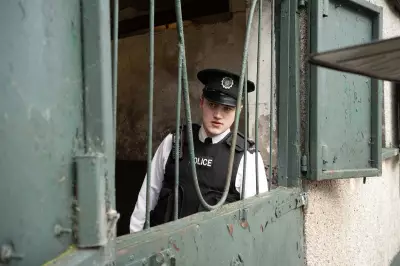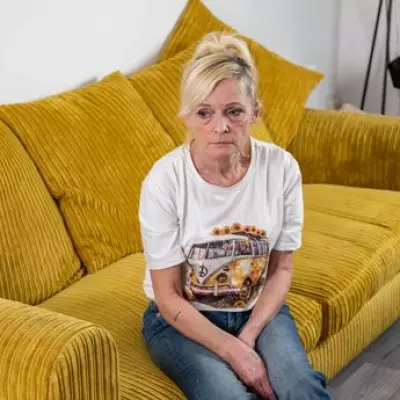Entertainment
Richard Osman Steps Down as Host of BBC's House of Games After Nine Years
Richard Osman announces his departure from hosting BBC Two's House of Games after nine years, citing it's 'time to let someone else have a go'. The show will continue with a new host.
Sports
Iranian Women's Footballer Killed in Protests Before Asian Cup
Zahra Azadpour, a 27-year-old footballer, was shot dead during protests in Iran. Her national team competes in Australia amid political turmoil.
Politics
First Stranded Brits Return Home as Middle East Crisis Continues
Approximately 102,000 British nationals are stranded in the Middle East, with limited flights resuming to bring them home amid ongoing regional tensions.
Crime
Met Police Chief Admits Women's Trust Eroded After Sarah Everard Murder
Met Police Commissioner Sir Mark Rowley has conceded that women's trust in the force remains low five years after Sarah Everard's murder by officer Wayne Couzens, despite efforts to remove problematic staff and improve vetting.
Health
Weather
Maldives Easter Flight Prices Skyrocket Amid Middle East Airport Shutdowns
Holidaymakers face soaring costs for direct flights to the Maldives this Easter, with prices exceeding £2,500, as Middle East airport closures disrupt travel routes and drive up fares.
Middle East Airspace Crisis Strands Britons, Airlines Scramble
Widespread airspace closures across the Middle East due to escalating Iran-US tensions have caused major flight disruptions, leaving British nationals stranded and airlines operating limited repatriation services.
Turkey Travel Safety: FCDO Advice Amid Conflict
The UK Foreign Office updates travel advice for Turkey as Middle East tensions escalate. Flights face cancellations, but most trips remain unaffected unless near the Syrian border.
Record Winter Rainfall Hits Three English Counties
Cornwall, Leicestershire, and West Midlands experience wettest winter on record, with southern England seeing fourth wettest. Met Office links heavy downpours to climate change impacts.
Pilot Aborts Landing in Gale-Force Winds on Spanish Island
A pilot dramatically aborted landing during gale-force winds in Lanzarote, executing a rejected approach manoeuvre to avoid disaster before safely landing on second attempt.
Tech
Get Updates
Subscribe to our newsletter to receive the latest updates in your inbox!
We hate spammers and never send spam
Environment
Monday Sports Challenge: Football, Cricket & Rugby Questions
Start your week with our Monday sports quiz featuring 100 questions about British football, cricket, and rugby. How well do you know these popular UK sports?













































